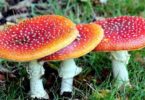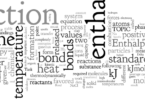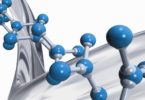s and p Block Elements – Representative Elements Quiz:
Sulfuric acid reacts with PCl5 to give
(a) Thionyl chloride
(b) Sulfur monochloride
(c) Sulphuryl chloride
(d) ulphur tetrachloride
Slaked lime is used in the manufacture of
(a) Cement
(b) Fire bricks
(c) Pigment
(d) Medicine
A metal used in storage batteries is
(a) Copper
(b) Lead
(c) Tin
(d) Nickel
Potassium is kept in
(a) Alcohol
(b) Water
(c) Kerosene
(d) Liquid ammonia
Which of the following will not undergo hydrolysis in water?
(a) Ammonium sulfate
(b) Sodium sulfate
(c) Calcium sulfate
(d) All the salts will hydrolyse
Related: MCQ on Polymer chemistry
Pyrolusite is
(a) Carbonate ore
(b) Sulphur ore
(c) Silicon ore
(d) None of these
The difference of water molecules in gypsum and plaster of paris is __
(a) 5/2
(b) 2
(c) ½
(d) 1½
The important method for the fixation of nitrogen is
(a) Haber
(b) Solvay
(c) Deacon
(d) Fischer method
Molten sodium is used in nuclear reactors to
(a) Absorb neutrons in order to control the chain reaction
(b) Slow down the fast neutrons
(c) Absorb the heat generated by nuclear fission
(d) Extract radio-isotopes produced in the reactor
The number of hydroxide ions produced by one molecule of sodium carbonate (Na2CO3) on hydrolysis is
(a) 1
(b) 2
(c) 3
(d) 4
Related: Digestive system exam questions
Sodium metal cannot be stored under
(a) Benzene
(b) Kerosene
(c) Alcohol
(d) Toluene
As the alkaline earth metals (except Be) tend to lose their valence electrons readily, they act as
(a) Weak oxidizing agent
(b) Weak reducing agent
(c) Strong oxidizing agent
(d) Strong reducing agent
Nitrogen is an essential constituent of all:
(a) Proteins
(b) Fats
(c) Proteins and fats
(d) None of these
The reaction of water with sodium and potassium is called __
(a) Exothermic
(b) Endothermic
(c) Reversible
(d) Irreversible and endothermic
The first ionization energies of alkaline earth metals are higher than those of the alkali metals. This is because
(a) There is a increase in the nuclear charge of the alkaline earth metals.
(b) There is a decrease in the nuclear charge of the alkaline earth metals.
(c) There is no change in the nuclear charge
(d) None of these
Related: Electrostatics questions
Potassium nitrate is called
(a) Mohr’s salt
(b) Gypsum
(c) Indian salt petre
(d) Chile salt petre
As compared to potassium, sodium has
(a) Lower electronegativity
(b) Higher ionization potential
(c) Greater atomic radius
(d) Lower melting point
The number of hydrogen atom (s) attached to the phosphorus atom in hypophosphorous acid is
(a) Zero
(b) Two
(c) One
(d) Three
The reactivity of the alkali metal sodium with water, is made use of
(a) In drying alcohol
(b) In drying benzene
(c) In drying of ammonia solution
(d) As a general drying agent
Which of the following has density greater than water?
(a) Li
(b) Na
(c) K
(d) Rb
Related: Microbiology exams and answers
Calcium salts give color when put in a flame.
(a) Brick red
(b) Green
(c) White
(d) Pink
The dark red color of bombs in fireworks is due to the presence of
(a) Na
(b) Ba
(c) Sr
(d) K
Which of the elements listed below occurs in allotropic forms?
(a) Iodine
(b) Copper
(c) Sulfur
(d) Silver
Portland cement is manufactured using:
(a) Lime stone, clay and sand
(b) Lime stone, gypsum and sand
(c) Lime stone, gypsum and alumina
(d) Lime stone, clay and gypsum
The element having atomic number 56 belongs to
(a) Actinides
(b) Alkaline earth metals
(c) Transition series
(d) Lanthanides
Related: Branches of Science and Explanation
Iron pipes lying under acidic soil are often attached to blocks of magnesium for protection from rusting. Magnesium offers protection to iron against corrosion because it
(a) Prevents air from reaching the surface of iron
(b) is more readily converted into positive ions
(c) is higher than iron
(d) Forms a corrosion-resistance alloy with iron
When orthoboric acid (H3BO3) is heated, is the residue left is __
(a) Metaboric acid
(b) Boron
(c) Borax
(d) Boric anhydride






